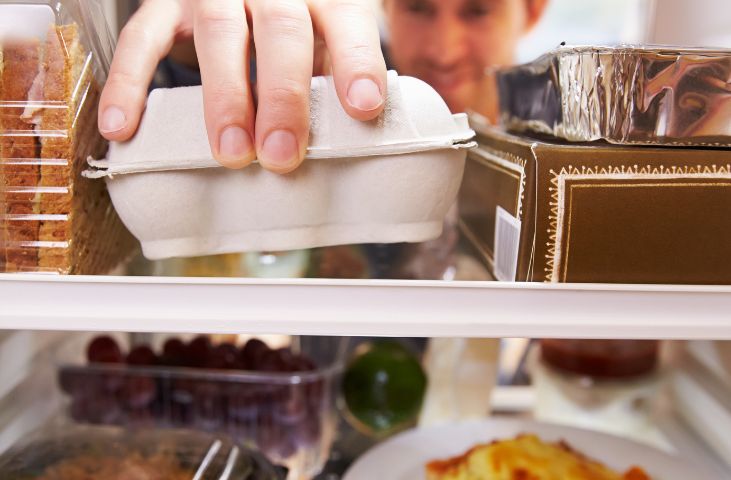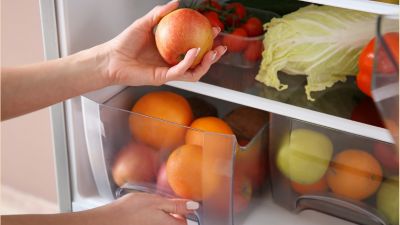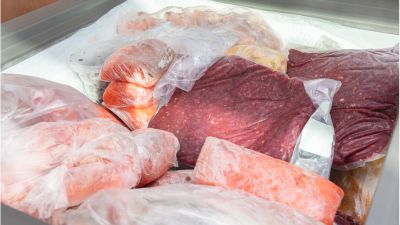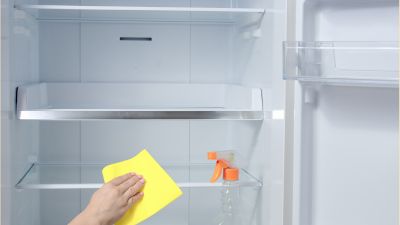Keeping Food Safe in your Fridge

Estimated reading time: 0 minutes
Keeping Food Safe in Your Fridge
Keeping food safe in your fridge is crucial for protecting consumers. Proper food storage is key as it helps prevent spoilage and the growth of harmful bacteria, which in turn reduces the risk of foodborne diseases.
This guide will give you an overview of the essential principles of food safety, focusing on optimal practices for refrigeration. We’ll cover effective strategies for keeping food safe in your fridge by arranging foods on various shelves and drawers designated for specific food types and to be able to maintain the perfect temperature for each specific food type. We’ll also look at techniques to lower the risk of cross-contamination between uncooked and ready-to-eat foods, maintaining an appropriate overall fridge temperature and the importance of regular cleaning and organising foods by their use-by dates.

Maintaining the Correct Fridge Temperature
Keeping your food safe in your fridge, the fridge’s temperature should be between 1 and 4°C. This range is crucial for stopping the growth of harmful bacteria and ensuring that perishables such as dairy products, meats and leftovers are safe to eat. While the temperature may vary in different fridge sections, keeping the general interior temperature within this range can help keep food safe. Additionally, avoid placing hot items directly into the fridge, as it can elevate the internal temperature, potentially compromising the safety of other stored items.
Effective Food Organisation
Refrigerators are designed with various compartments, such as salad drawers, door shelves and sometimes specific areas for meat, fruits and vegetables. These compartments often maintain different temperatures, with some being cooler and others slightly warmer. Organising food into these different zones according to temperature helps in keeping storage orderly, minimises bacterial growth, extends food freshness and aids in preventing cross-contamination.

- Top Shelf: Ideal for drinks and ready-to-eat items like leftovers, as these are less affected by temperature changes and are kept away from raw foods that could contaminate them.
- Middle Shelves: Best for dairy products and cooked meats, providing a balance between cooler and slightly warmer temperatures to help maintain freshness and safety.
- Bottom Shelf: Reserved for raw meat, poultry and seafood, benefiting from the cooler temperatures to reduce bacterial spread and contamination risk. Store these items in airtight containers or tightly sealed to prolong freshness.
- Salad Drawers: Perfect for fruits and vegetables, keeping them fresh by separating them from other foods.
- Fridge Door: Suited for condiments, preserves and juices. Avoid storing perishables here due to temperature fluctuations from frequent door openings.
- Additional Tip: Avoid storing open cans in the fridge to prevent chemical contamination.
Regular Fridge Cleaning
To keep your food safe in your fridge you should ensure it is cleaned regularly to avoid bacteria buildup. Clean spills immediately with a mild detergent.

Implement the FIFO Method
Use the ‘First In, First Out’ principle to prioritise older items over new ones, ensuring food freshness and adherence to use-by dates, although items past their best-before date might still be consumable, albeit with potentially reduced quality.
In conclusion, by understanding and applying these best practices for refrigerated food safety, you can ensure you are keeping food safe in your fridge, significantly reducing the risk of foodborne illnesses. Key measures include storing food in the appropriate sections, maintaining an ideal temperature, ensuring cleanliness and practicing stock rotation.
Online Food Hygiene Courses
Our online food hygiene courses are ideal for anyone looking to gain knowledge and practices around food safety, including covering the principles of storing food safely, preventing foodborne illnesses and promoting a culture of safety and hygiene in both domestic and professional kitchens.
Our friendly customer support team is always happy to talk through your food hygiene training options. Why not give us a call on 01327 552136, email us at hello@smarthorizons.co.uk, or use the live chat feature on this website to speak to us during office hours. We’re here to help from 9am to 5.30pm, Monday to Friday.
Related Links
